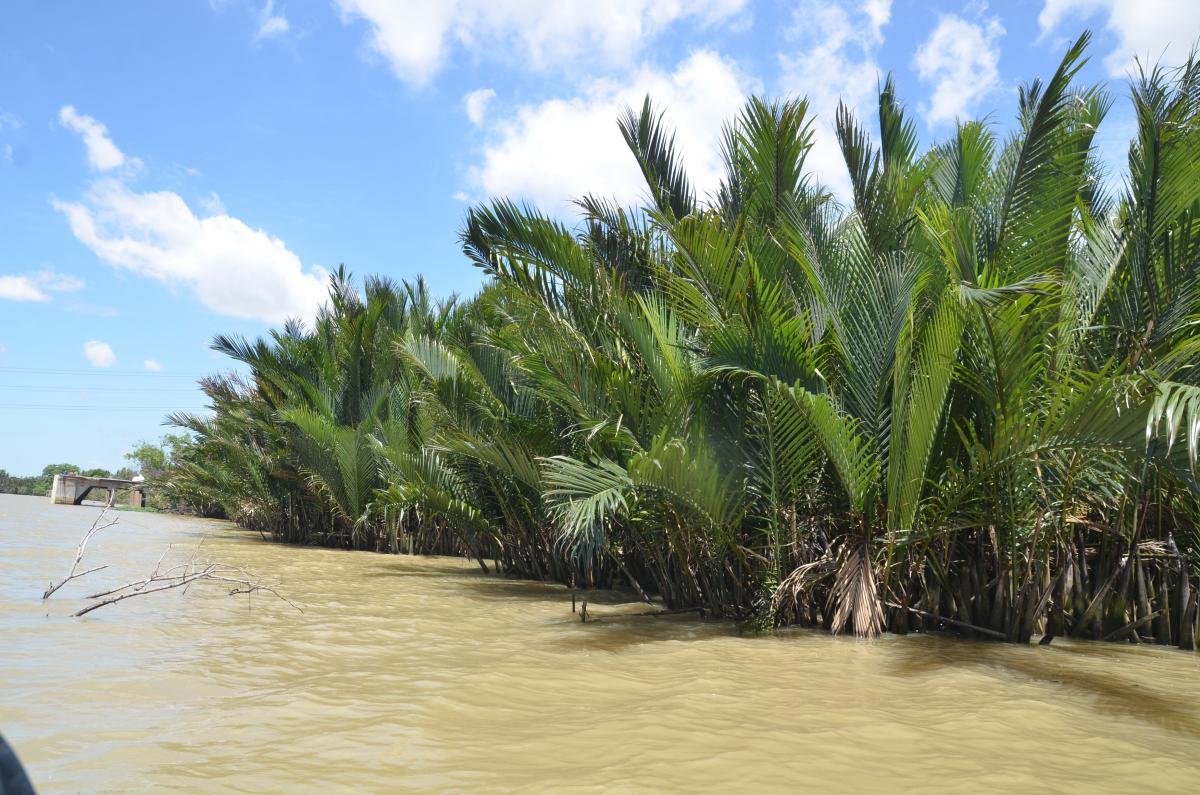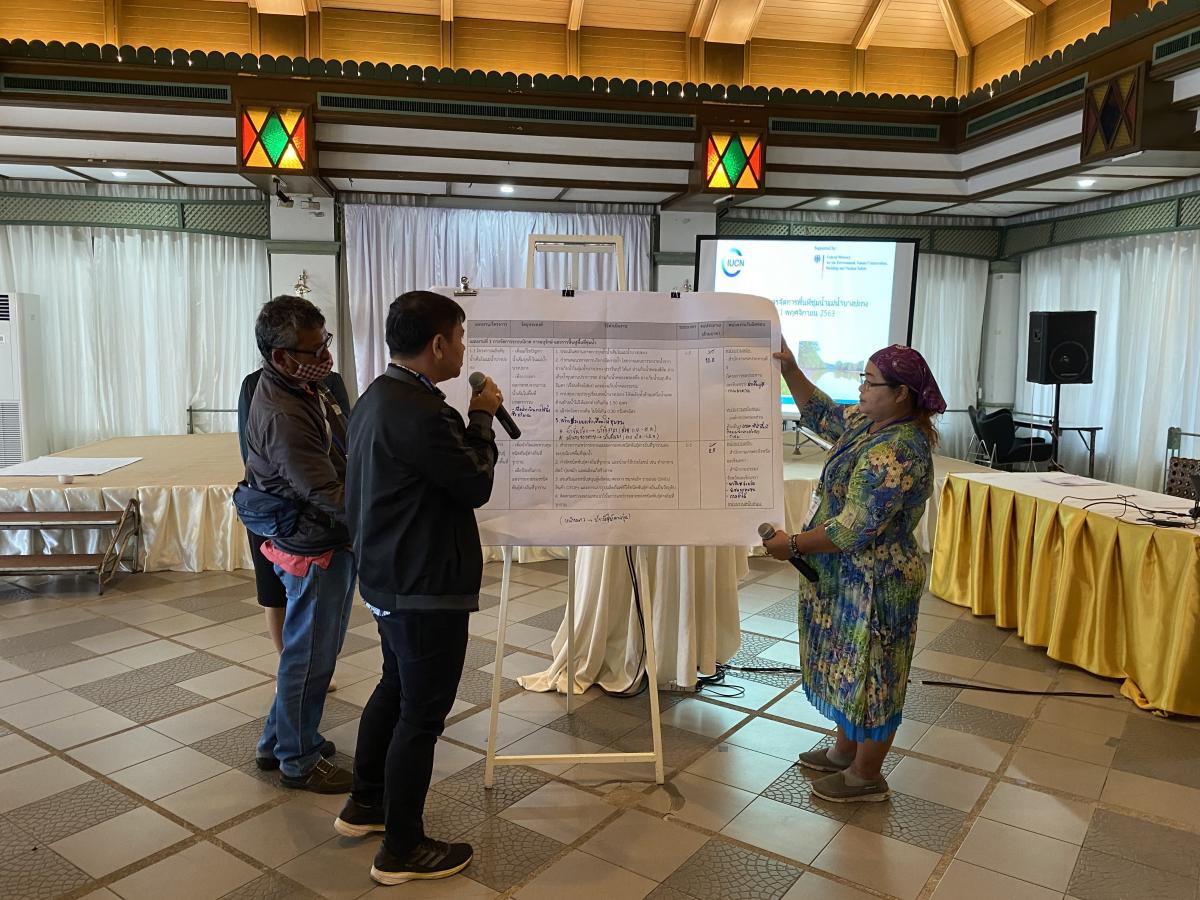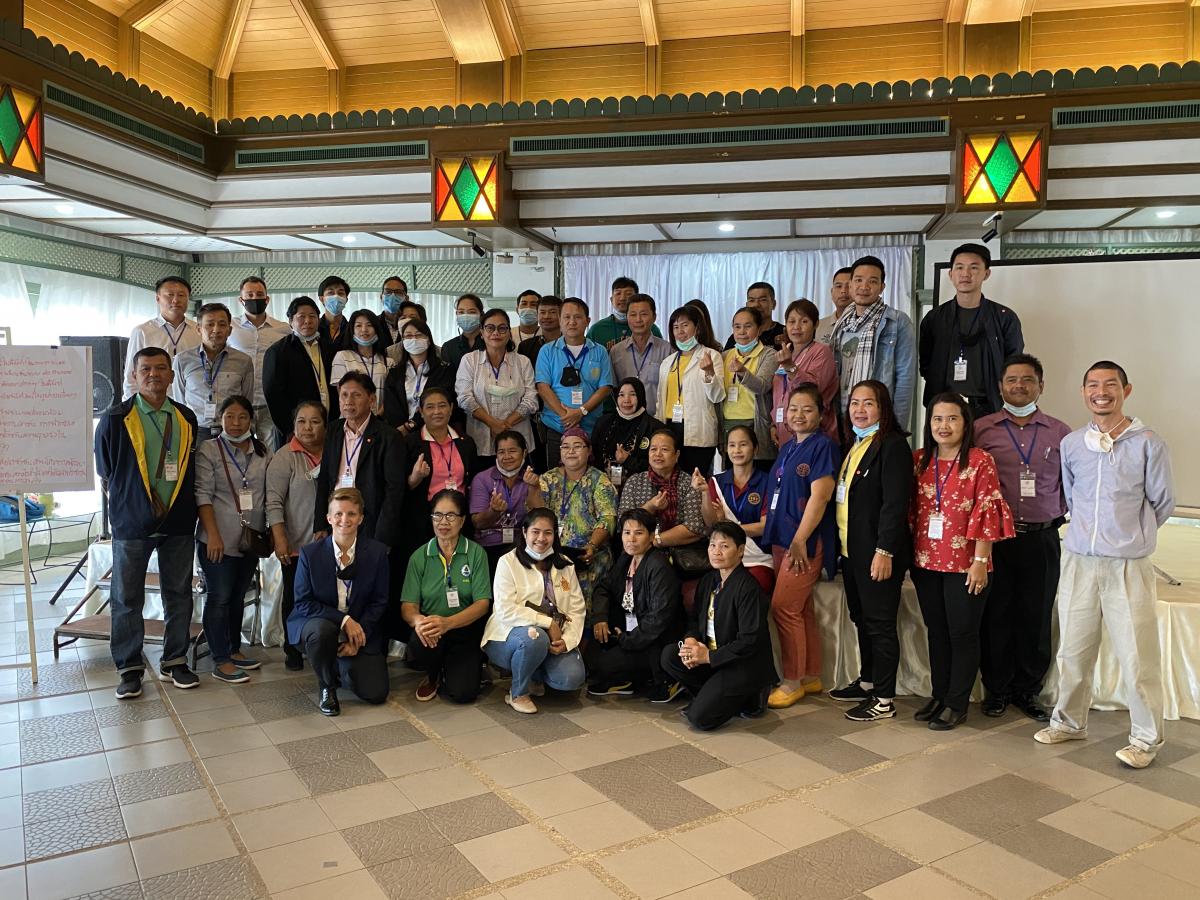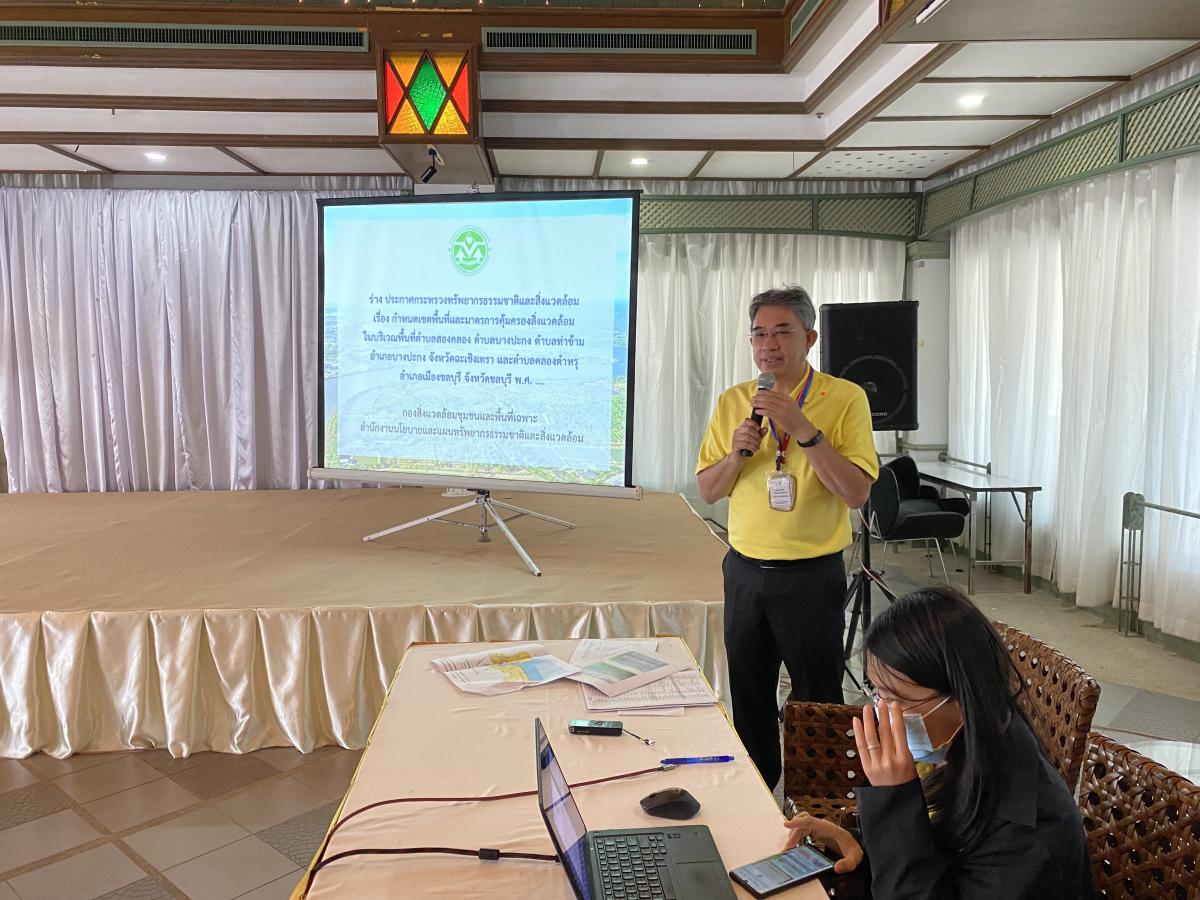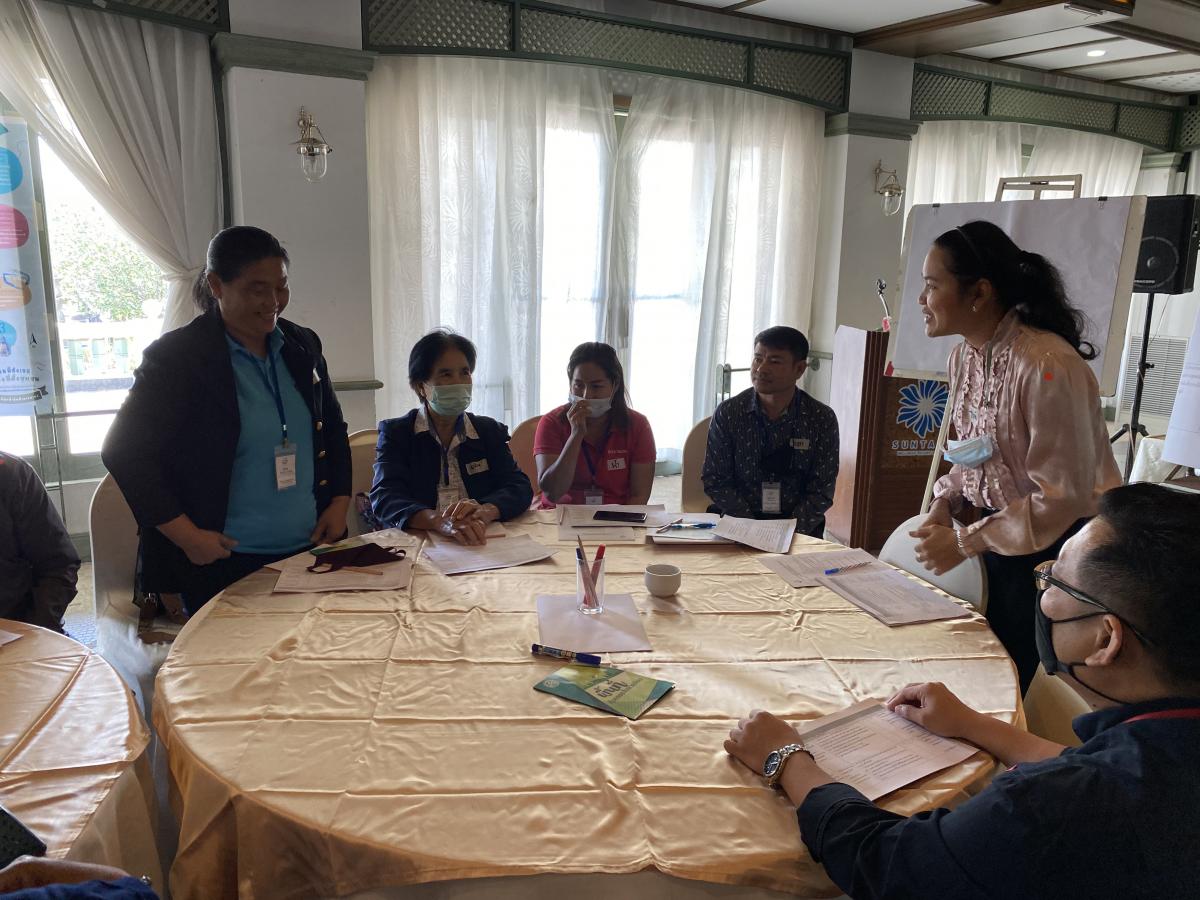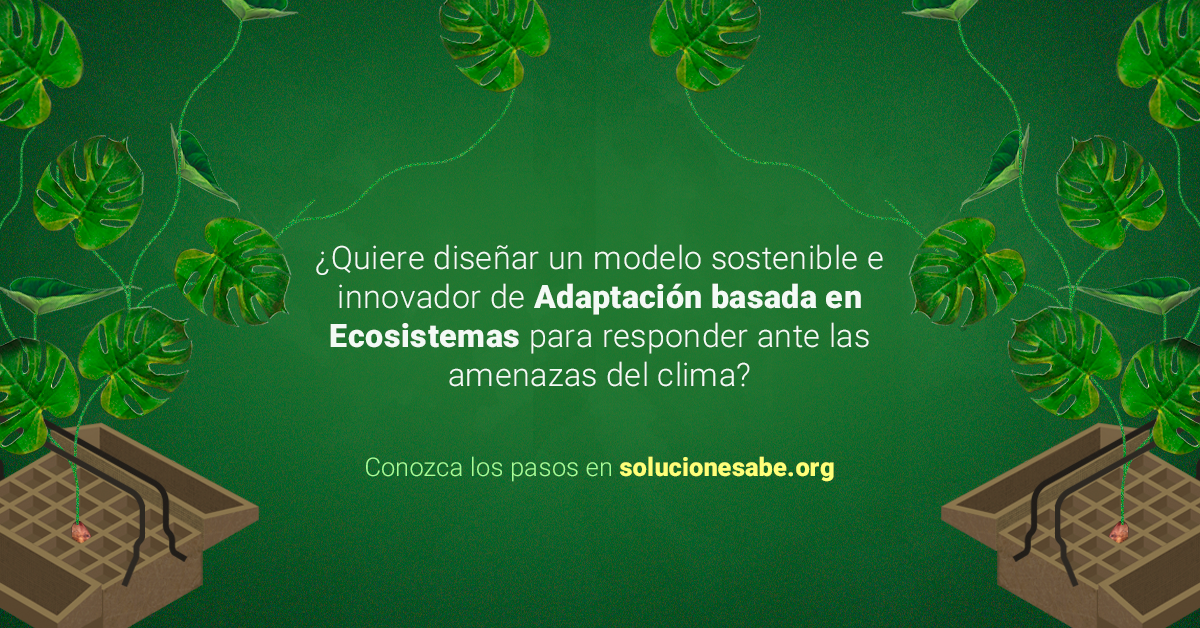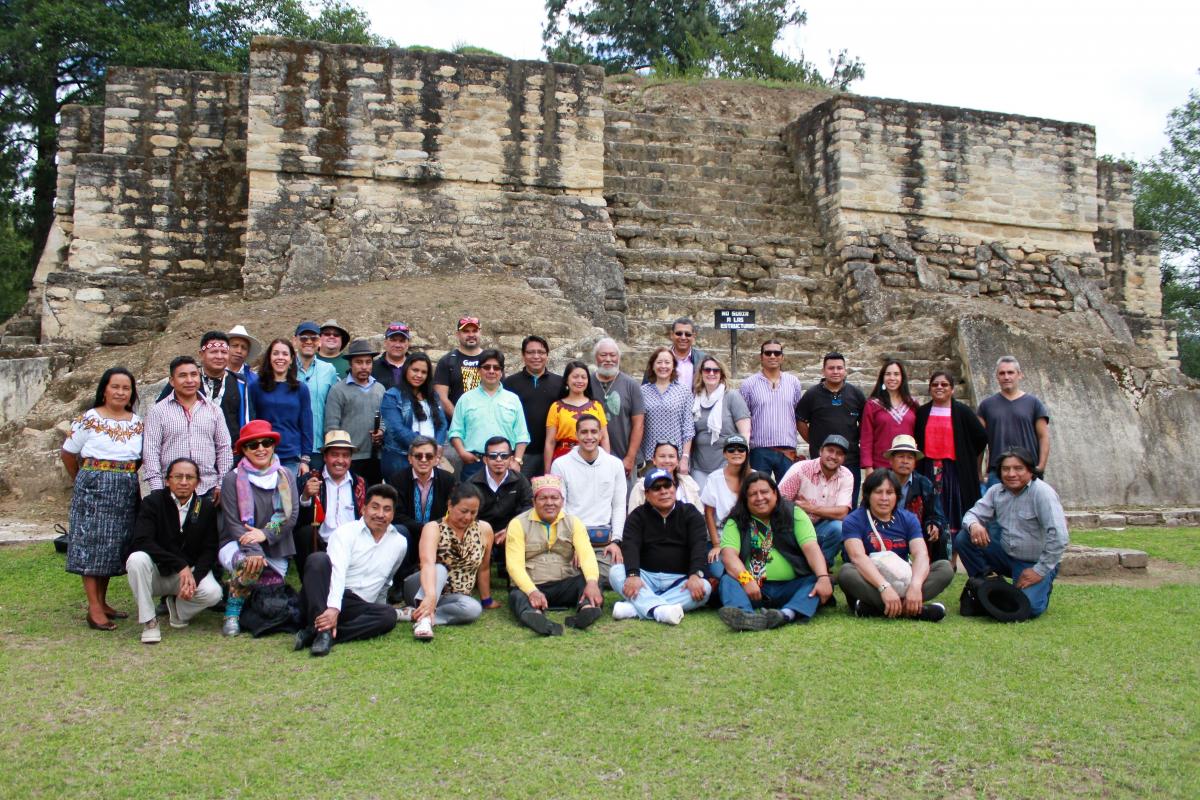Wetland stakeholders develop a management plan for the wise use and conservation of the Bang Pakong River
From 10 to 11 November 65 participants from local communities and government agencies gathered to develop a management plan for Bang Pakong River, a nationally important wetland of Thailand. The 122-kilometre river flows through four provinces and supports the livelihoods of nearly 70 percent of the surrounding population, providing diverse ecosystem services through its freshwater, brackish, and saltwater habitats.
The management plan will build on the results from the Climate Change Vulnerability Assessment and climate change adaptation planning consultations at the site, which highlight climate threats and potential Ecosystem-based Adaptation actions to strengthen the resilience of the wetland. The site management plan is structured around four main components: ecosystem conservation; resilient livelihoods; Communication, Education, Participation, and Awareness (CEPA); and governance, and will support the designation and management of the site as an Environmental Protected Area.
During the meeting, participants discussed solutions, including restoring forests in the watershed, controlling invasive alien species, regulating fishing gear, land use planning, and methods to address coastal erosion. Community members suggested a return to traditional farming models, such as the Na Kha Wang rice system, which combines rice paddies and natural aquaculture, as well as the Khok Nong Na model, an area-based management approach to integrated farming that provides year-round income for farmers.
The discussion groups were split into upstream and downstream communities, to analyse their varying priorities for the management plan. Mrs. Benja Po-Ngam, a fisherwoman from Klong Tamru, adjacent to the estuary, mentioned, "The health of the marine species that we depend on for fisheries is directly connected to the water quality and the management of the mangrove forests, which act as nurseries. It is essential to keep this ecosystem clean and healthy to provide for the next generation." Upstream communities expressed concern about the impact of saltwater intrusion and the availability of fresh water for agricultural use.
Mr. Gun Tattiyakul, an environmentalist living in Bang Pakong River wetland emphasised the role of civil society in wetland conservation, saying, "In the last five years, the movement to register Bang Pakong River Wetland as a Ramsar site has gradually gained momentum. We have conducted numerous activities, such as producing a documentary and hosting public forums in order to raise awareness of the importance of the wetland."
The site has not yet been nominated as a Ramsar site, however, Mr. Weeranit Thansuporn, Director of Protected Area Division, provided an update on the designation of the estuary as a protected area, stating that, "Designating the Bang Pakong estuary as an Environmental Protected Area will help to ensure the long-lasting benefits provided to the surrounding communities. The declaration process is currently under consideration by the Council of State."
While it acts as an important fishing area, the wetland is also home to a large diversity of local bird species and provides critical resting areas and food sources for migratory birds. The estuary is a hotspot of biodiversity, including vulnerable species such as the Irrawaddy dolphin (Orcaella brevirostris). The management plan for the site will seek to promote the Ramsar concept of wise use of wetlands, supporting the management of the site that benefits both local communities and biodiversity.
The activity is conducted as part of the Mekong Wet Project: Building Resilience of Wetlands in the Lower Mekong Region through a Ramsar Regional Initiative.
About Mekong Wet
Funded by the International Climate Initiative (IKI) of the German Federal Ministry for the Environment, Nature Conservation, Building and Nuclear Safety (BMUB), the “Mekong WET: Building Resilience of Wetlands in the Lower Mekong Region” project aims to build climate resilience by harnessing the benefits of wetlands in Cambodia, Lao PDR, Thailand, and Viet Nam. Mekong WET, to be implemented until 2020, will help these countries address their commitments to the Ramsar Convention, an international treaty for the conservation and sustainable use of wetlands and to achieve the Aichi Biodiversity Targets. The project is also supporting the Indo-Burma Ramsar Regional Initiative (IBRRI) and the implementation of the IBRRI strategic plan 2019-2024.
